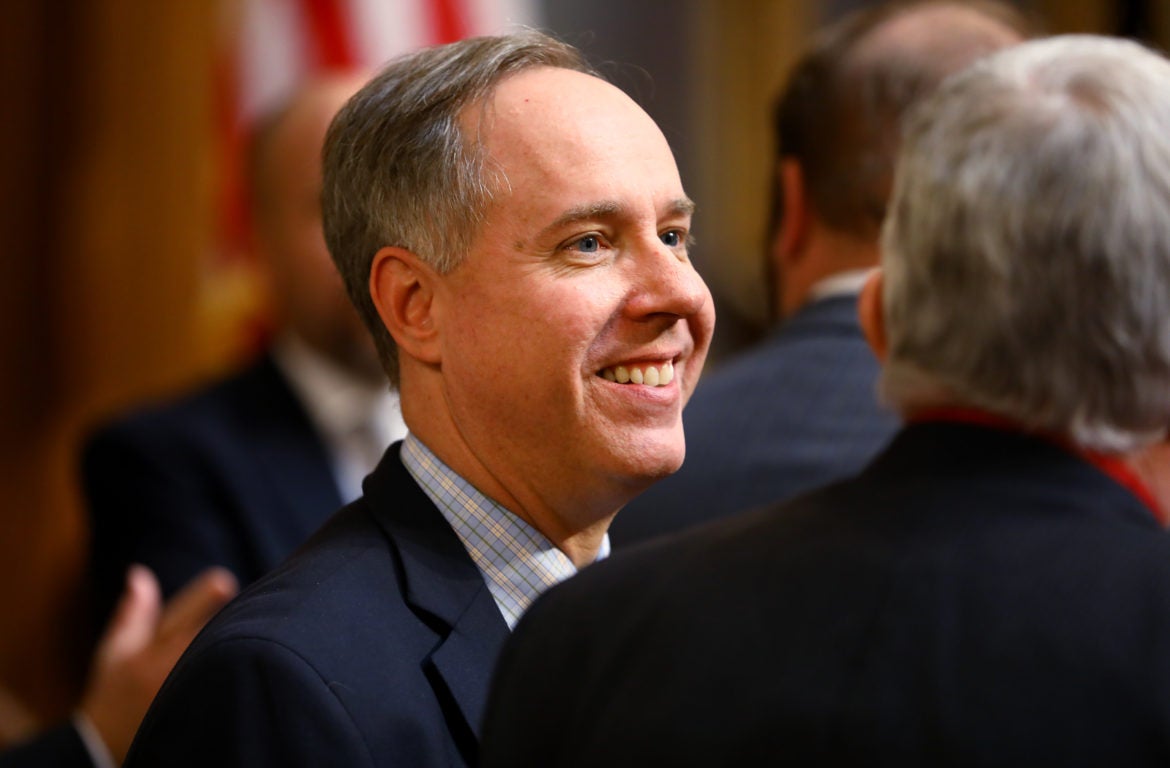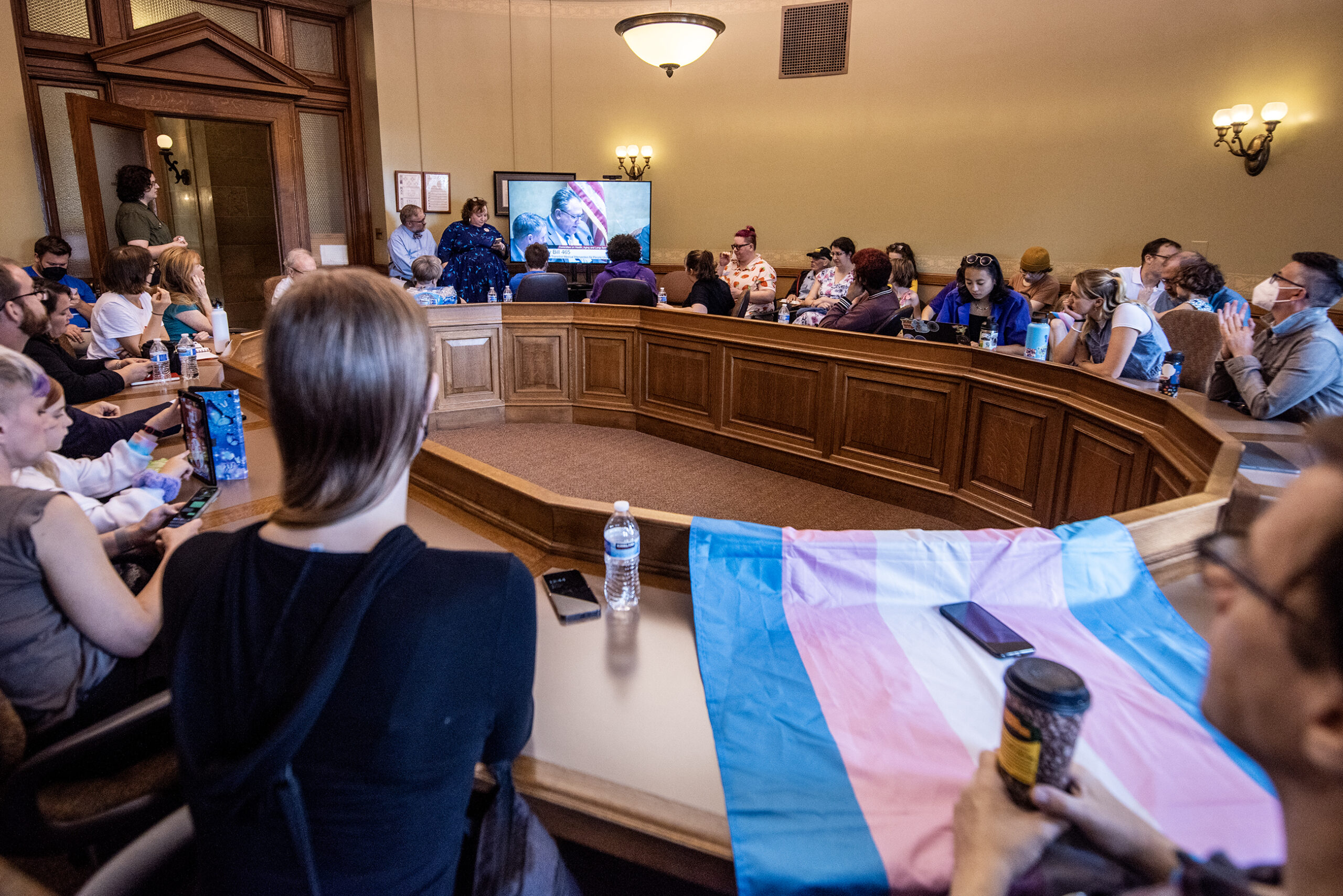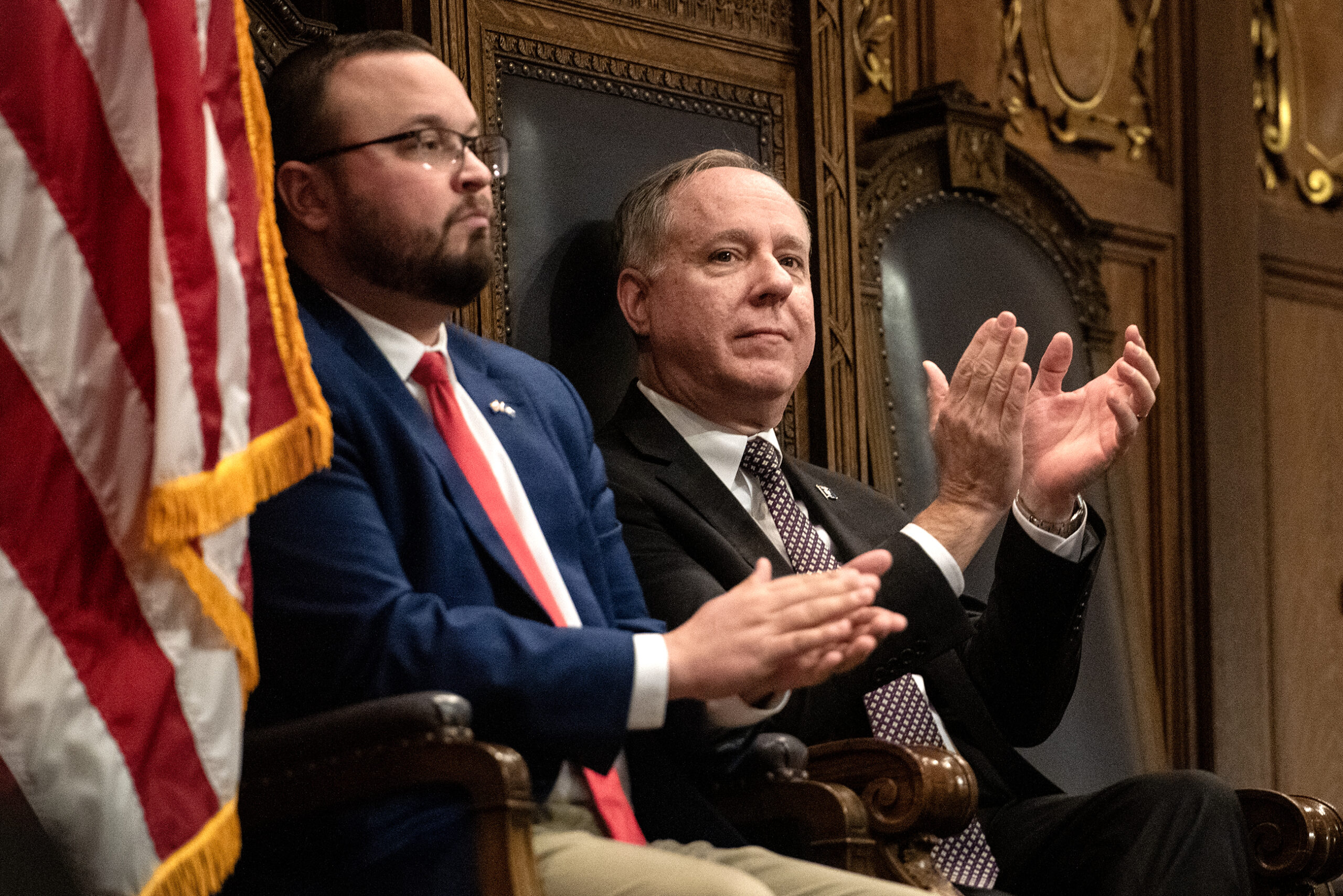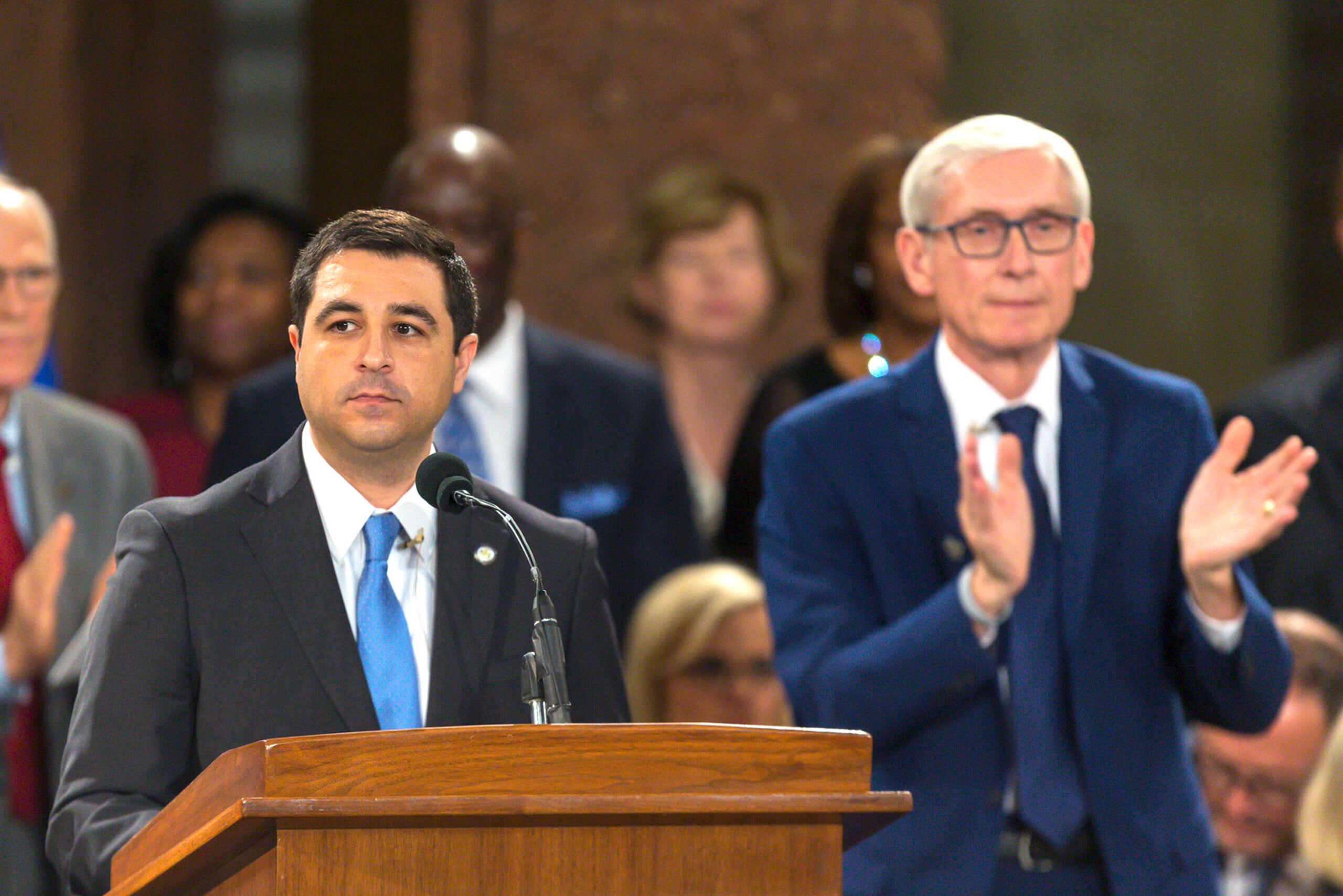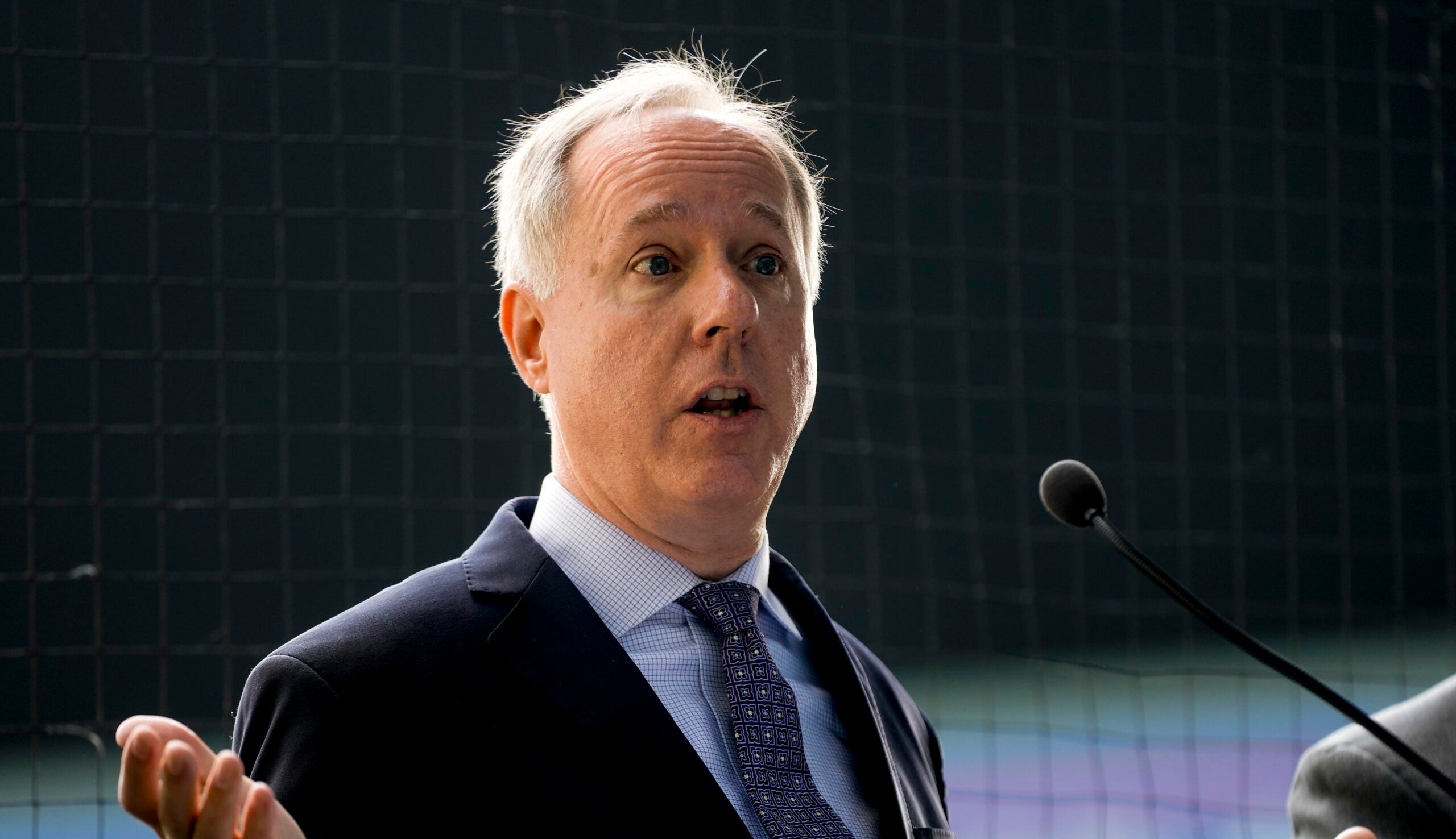A Republican-backed stay-at-home order in Wisconsin would include a shift to regional restrictions and a move away from a state list of so-called “essential businesses,” the leader of the state Assembly said Wednesday.
GOP lawmakers who control the Legislature have been pushing back on the Evers administration’s “Safer at Home” order for weeks, but have been slow to introduce their own comprehensive plan.
Speaking at an online Wisconsin Health News event Wednesday morning, Assembly Speaker Robin Vos, R-Rochester, said he hopes Republicans will never have to debut their own proposal. He would prefer to have a “seat at the table” while the executive branch drafts changes to its current order.
Stay informed on the latest news
Sign up for WPR’s email newsletter.
“There has been no consultation (with lawmakers), there has been no sitting down,” Vos said. “From my perspective, there should not be a Democrat plan and a Republican plan to fight the virus, there should be a Wisconsin plan.”
Vos and other legislative leaders met with the governor Monday to discuss the state’s response to COVID-19. In a statement released afterward, Vos called that meeting a “good initial discussion.”
Vos said he and other lawmakers are more in touch with Wisconsin residents than the governor, so they should be consulted about changes.
“The input we are getting, I think, is dramatically different than (feedback from) the few people that Gov. Evers is able to touch base with on a daily basis,” he said.
During the event, the Speaker reiterated his party’s support for a more regional approach to restrictions on businesses and people.
“Let’s start to turn the dial, as opposed to treating every part of the state like it is Milwaukee,” he said. “Because if we wait for Milwaukee and Brown County to be the indicator, it’s going to be a long time potentially before Wisconsin can open up.”
Vos also said he supports including more specific phases for restaurants reopening, including possible guidelines for when they could offer outdoor seating and benchmarks for reaching different percentages of indoor capacity.
He also urged a move away from a list of so-called “essential businesses” that are allowed to be open, while others are not.
“I don’t understand how you can go and get a key made at Walmart or buy flowers for Mother’s Day, but somehow if you would go to the flower shop or the key shop, that would be a major threat to public health,” Vos said.
He said he trusts people and businesses to take the appropriate health precautions.
Vos also said the state should have the plan to allow for churches to begin offering in-person worship services again.
The Speaker said he has been consulting with the Wisconsin Hospital Association and nursing home groups when considering possible changes to Wisconsin’s current policies.
Some Republicans have also backed a plan from the state’s largest business group, Wisconsin Manufacturers & Commerce (WMC), that would reopen the state immediately. The WMC plan suggests different levels of protection for workers, like face masks and social distancing, depending on where a business is located and the type of work it does.
The Speaker’s comments at the event came one day after the Wisconsin Supreme Court heard arguments in a lawsuit brought by the GOP-controlled Legislature to strike down the Evers administration’s current stay-at-home order.
If the court, which is controlled 5-2 by conservatives, rules in favor of GOP lawmakers, the Evers administration would have to work with the Legislature to craft a new order. If it fails to do so, restrictions would be left to counties.
The lawsuit argues the administration, particularly state Department of Health Services Secretary Andrea Palm, has too much power when issuing orders that close businesses and bar residents from gathering in groups of a certain size.
The administration says Palm is acting under the authority of state laws that grant her office the power to issue restrictions and other state responses to managing communicable diseases.
A ruling in the case is expected any time.
Another lawsuit challenging the stay-at-home order was filed earlier this week. That lawsuit, brought by a pair of Wisconsin residents, argues the order violates the state constitution’s guarantees of freedoms of worship, assembly, speech and travel.
Wisconsin Public Radio, © Copyright 2025, Board of Regents of the University of Wisconsin System and Wisconsin Educational Communications Board.
